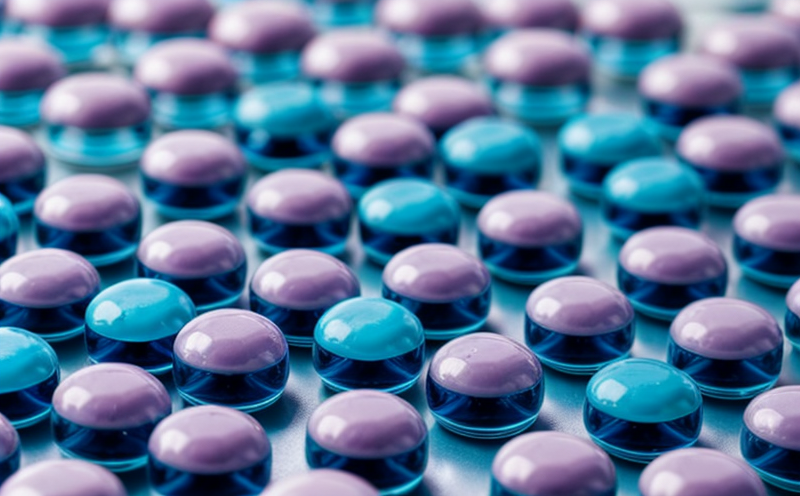ISO 11737-2 Sterility Assurance Testing of Medical Products
The ISO 11737 series is a set of international standards that provide requirements and methods for the microbiological examination of medical devices to ensure sterility. These tests are critical in ensuring that healthcare products do not harbor potentially harmful microorganisms, which can lead to infections or other complications.
The second part of ISO 11737 specifically focuses on providing guidance for the sterilization process and subsequent testing procedures. This includes both biological indicators (BI) and chemical indicators (CI), designed to confirm that a sterilization cycle has been effective in eliminating all viable microorganisms from a medical product.
The test involves two main stages: first, the products undergo sterilization using an approved method. Afterward, they are inoculated with a specified number of spores and incubated under controlled conditions. If no microbial growth is observed after a set incubation period, it indicates that the sterilization process was successful.
The significance of this test cannot be overstated in the medical device industry. It ensures patient safety by confirming that devices are free from contamination before use. This is particularly crucial for single-use products like surgical instruments or implants where even trace amounts of microorganisms could pose significant health risks.
Accurate and reliable sterility testing is also essential for regulatory compliance, especially when dealing with Class II and III medical devices in the European Union (EU). Meeting these standards helps manufacturers meet EU directives such as Medical Device Regulation (MDR).
The process of ISO 11737-2 testing involves several steps that are critical to achieving accurate results. The first step is selecting appropriate biological indicators for the specific sterilization method used. For instance, if ethylene oxide gas sterilization is employed, a spore suspension suitable for this method should be chosen.
Proper specimen preparation is also crucial; any contamination introduced during this stage can lead to false negatives or positives. Therefore, it's important that personnel handling the samples are trained in sterile technique and understand the importance of maintaining aseptic conditions throughout the procedure.
Once prepared, the specimens are placed into the sterilizer for treatment according to the manufacturer’s recommendations. Following sterilization, they undergo incubation in an environment conducive to microbial growth if any spores were present initially.
The final step is interpreting results correctly based on internationally recognized criteria outlined within ISO 11737-2 standard. Any positive findings would indicate that further investigation into the sterilization process may be necessary while negative results provide evidence supporting successful sterilization.
Given its importance, many organizations rely heavily upon accredited laboratories like Eurolab for conducting these tests due to their expertise and adherence to strict quality assurance protocols.
Industry Applications
| Industry Sector | Application Area | Description |
|---|---|---|
| Biomedical Engineering | Sterilization of Implants and Surgical Instruments | Ensuring that implants and surgical instruments are free from any viable microorganisms prior to use. |
| Hospitality | Reusable Medical Devices | Testing reusable devices such as scopes or catheters after cleaning and disinfection processes. |
| Pharmaceutical Manufacturing | Single-use Packaging Integrity Testing | Verifying that single-use packaging materials used in drug delivery systems maintain sterility during distribution. |
| Dental Healthcare | Sterilization of Dental Instruments | Making sure dental instruments are safe for patient use by eliminating any potential pathogens present after sterilization. |
These applications underscore the importance of adhering to ISO 11737-2 standards across various sectors within healthcare and beyond. By ensuring that all medical products comply with these stringent requirements, we contribute significantly towards enhancing patient safety and overall quality of care.
Eurolab Advantages
At Eurolab, our commitment to excellence ensures that clients receive accurate, reliable results through rigorous testing methods aligned with international standards. Our dedicated team of experts possesses extensive experience in performing ISO 11737-2 sterility assurance tests.
- In-House Expertise: We have a comprehensive understanding of the latest methodologies and best practices as recommended by the standard.
- State-of-the-Art Facilities: Equipped with modern equipment tailored specifically for microbiological testing, ensuring consistent high-quality results.
- Dedicated Personnel: Highly trained staff members ensure that every aspect of the test process is conducted meticulously and accurately.
- Regulatory Compliance: Our services meet all relevant regulatory requirements including those set forth by EU directives.
In addition to technical proficiency, Eurolab prides itself on providing prompt communication throughout the testing cycle. Clients can expect timely updates regarding their samples' status and final reports delivered in accordance with agreed timelines.
Choosing Eurolab means choosing a partner committed not only to delivering top-notch services but also fostering long-term relationships built on trust and mutual respect.
Quality and Reliability Assurance
- Biological Indicators (BIs): These indicators contain spores resistant enough to withstand the most severe sterilization conditions. Positive results from BIs indicate that a particular sterilization cycle has failed.
- Chemical Indicators (CIs): While CIs do not directly detect microbial presence but instead monitor temperature and time parameters, they serve as supplementary evidence supporting successful sterilization.
- Environmental Monitoring: Regular checks are conducted to ensure that no contamination has occurred during the entire testing process. This includes maintaining proper aseptic conditions within laboratories.
- Data Validation: All data collected during ISO 11737-2 tests is meticulously validated to guarantee its accuracy and reliability.
By incorporating these measures into our quality assurance framework, Eurolab ensures that all results are trustworthy and can be relied upon by clients worldwide. Our robust approach guarantees consistent outcomes across multiple batches of samples submitted for testing.





